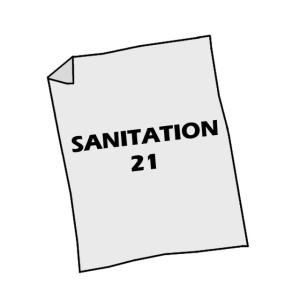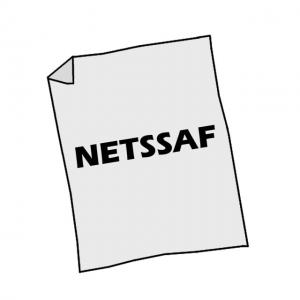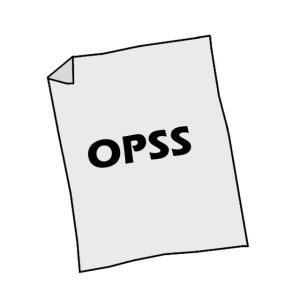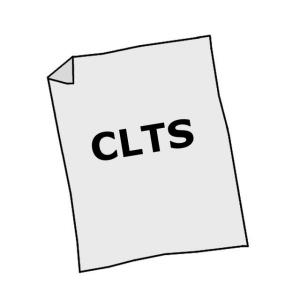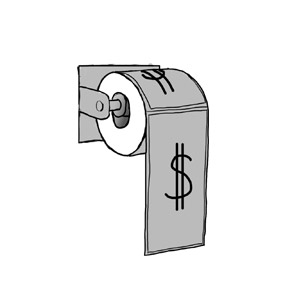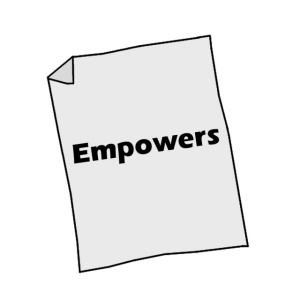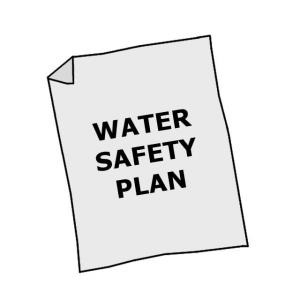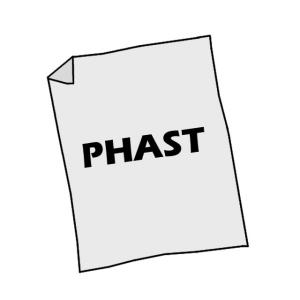The Sustainable Sanitation and Water Management Toolbox recognizes that sectoral approaches are not going to solve the global water and sanitation crisis. It highlights that we need holistic approaches and must consider the entire water cycle from source to sea, and back, and puts human influence on the water and nutrient cycle at the centre.
But what are such holistic approaches? What is understood by Integrated Water Resources Management? And what does Sustainable Sanitation actually mean? And how do we link the two, and bring in agriculture into the play?
In this section, you will find the necessary concepts boiled down to their essence, and how each of these topics is just one part of the complete picture:
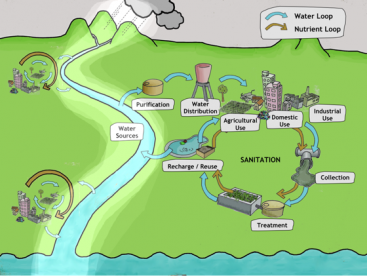
The Water Cycle gives basic information on how water travels the earth.
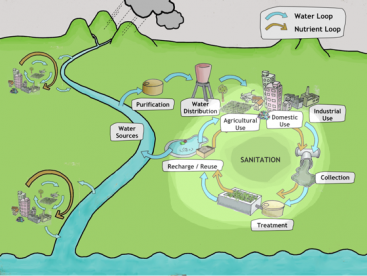
The Nutrient Cycle explains the natural nutrient’s flow.
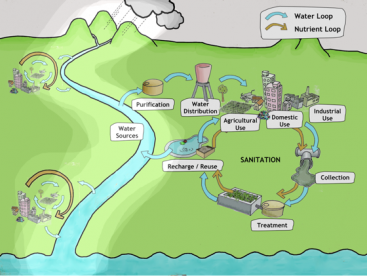
IWRM makes you understand the concept of Integrated Water Resources Management
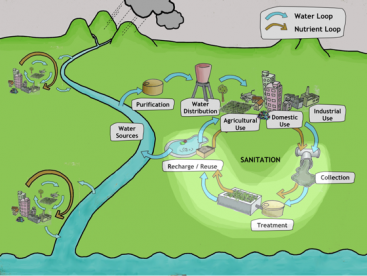
Sustainable Sanitation highlights what is meant by sustainable sanitation
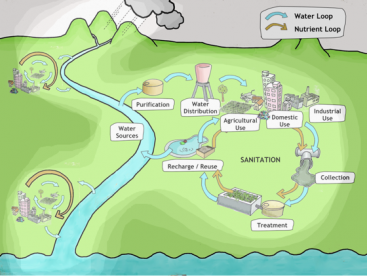
Linking up Sustainable Sanitation and Water Management explains how sanitation, water management and agriculture are linked and why it is necessary to consider them jointly.
SDG 6 along the water and nutrient cycles
This AGUASAN publication illustrates how the water and nutrient cycles can be used as a tool for creating a common understanding of a water and sanitation system and aligning it with SDG 6.
BROGAN, J., ERLMANN, T., MUELLER, K. and SOROKOVSKYI, V. (2017): SDG 6 along the water and nutrient cycles. Using the water and nutrient cycles as a tool for creating a common understanding of a water and sanitation system - including workshop material. Bern (Switzerland): AGUASAN and Swiss Agency for Development and Cooperation (SDC) URL [Accessed: 26.03.2019] PDFReport of the Special Rapporteur on the Human Right to Safe Drinking Water and Sanitation, Catarina de Albuquerque
Focusing on sustainability in the realization the human rights to water and sanitation, the report examines how the rights to water and sanitation can and must be met for present and future generations. Using the human rights framework, the report analyses states’ common approaches to water and sanitation, particularly in adopting measures both during times of normalcy and during economic and financial crises, and shows how those approaches often fail to incorporate sustainability.
ALBUQUERQUE, C. (2013): Report of the Special Rapporteur on the Human Right to Safe Drinking Water and Sanitation, Catarina de Albuquerque. (=Report submitted to the General Assembly’s Human Rights Council, 24th session, July 11, 2013). Geneva: Office of the United Nations High Commissioner for Human Rights (OHCHR) URL [Accessed: 07.10.2013]

